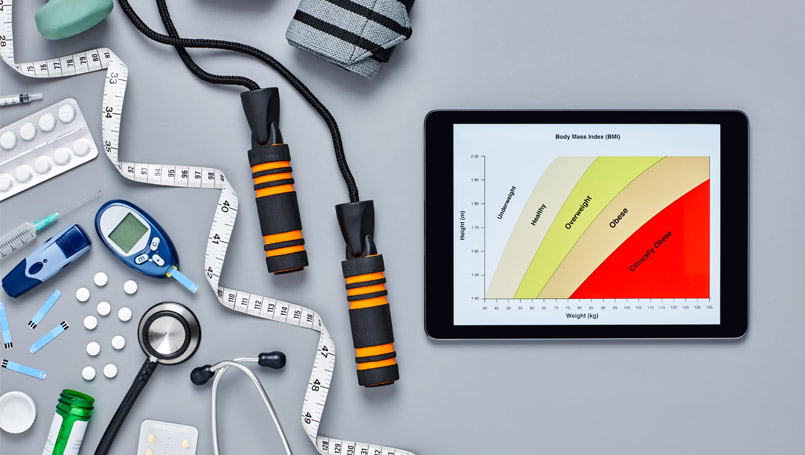
Body mass index, frequently abbreviated as BMI, has become increasingly common over the past couple decades as a health measurement, particularly as insurance companies use it to see who qualifies for bariatric weight-loss surgery, a growing area of treatment for patients with serious weight problems.
Body mass index is a measure of your weight in relation to your height, a measure used by physicians to assess how much extra weight you’re carrying. Normal BMI - and more on that in a moment - is considered 18.5 up to 25, while readings from 25 up to 30 are considered overweight, and anything over 30 is considered obese.
“It’s being considered almost like a vital sign,” Wendy Miller, M.D., medical director at Beaumont Weight Control Centers, said. “Now it’s required that BMI is measured because that can also impact a person’s health in terms of their risk for Type 2 diabetes heart disease, high cholesterol and high blood pressure.”
Shortcomings of BMI
BMI is a screening tool that tells doctors whether someone is carrying excess body fat. But it doesn’t tell you anything about your body composition.
That’s an important distinction. For one thing, athletes with low body fat but a high muscle mass tend to have higher BMIs. And even if you are carrying excess body weight, where you’re carrying it on your body makes a difference. Dr. Miller said people who are apple shaped, with fat carried around the abdomen, are at higher risk for chronic disease than those who are pear shaped, where the fat is concentrated around the hips and thighs.
“In that regard, a lot of people argue that waist circumference gives us a lot more information about health risks than just measuring BMI,” Dr. Miller said.
BMI also doesn’t take into account a person’s activity levels. One person could be overweight and sedentary, while another person’s BMI might technically put them in the mildly obese category even though they are very active and have a lower percentage of body fat.
What’s more, different ethnic groups are at higher risk with lower BMIs. For instance, Asian Americans are considered in the normal range from 18.5 to 23.9, whereas Caucasians and Native Americans go up to 24.9. African Americans, meanwhile, often have a higher BMI but a lower health risk because they tend to have a higher muscle mass.
What to do about a high BMI reading
Dr. Miller advises patients who have a BMI above the normal range to get a waist measurement to assess their risk for chronic health problems.
And if your BMI puts you in the overweight or obese category, get a health screening from a health care professional. If you haven’t checked in the past year, get your cholesterol readings, blood sugar and blood pressure checked.
One other condition associated with high BMI is sleep apnea, which over time can lead to problems like atrial fibrillation or other heart problems - especially if you’re prone to snore at night. Here, a neck circumference measurement and screening can assess your risk.
